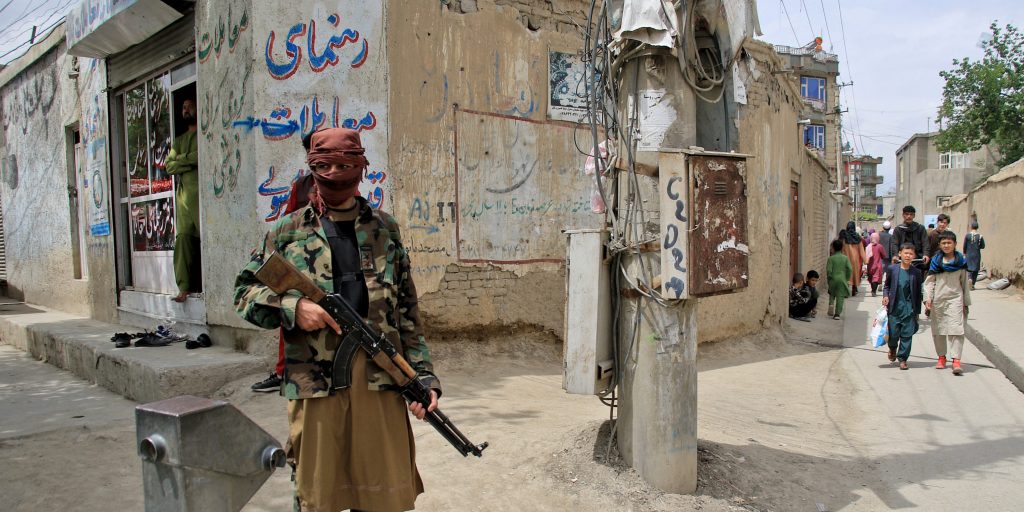- Al Qaeda is "delighted" at the Taliban's control of Afghanistan, an expert has claimed.
- Professor Michael Semple said the Taliban was guaranteeing Al Qaeda's "continued personal survival".
- His analysis is supported by a UN report, suggesting the relationship "remains close".
The Taliban's control of Afghanistan is guaranteeing the "continued personal survival" of Al Qaeda, an expert has claimed, with a United Nations report supporting the claims.
A report from a UN monitoring team published Thursday says the relationship between the two groups "remains close", with Al Qaeda described as being "pleased with" the Taliban's takeover.
The UN says Al Qaeda is using the takeover to increase their numbers and funding, as well as to "inspire Al Qaeda affiliates globally."
Michael Semple, a professor at Queen's University Belfast and Afghanistan specialist, told MP Tom Tugendhat the country had become a "safe haven" since the Taliban regained control last summer, something Al Qaeda was "delighted" with.
The Taliban's control "guarantees their continued personal survival and ability to reorganise the Al Qaeda network", Semple told the Committee Corridor podcast.
His analysis is echoed in the UN report, which states that "under the Taliban, Afghanistan is viewed as a friendly environment for continued occupancy".
Al Qaeda members are "reported to be living in Kabul's former diplomatic quarter where they have access to Ministry of Foreign Affairs meetings", the UN said with Al Qaeda providing "advice and support" to the Taliban.
However both Semple and the UN monitoring team believe the group's operational capability and likelihood to mount attacks outside Afghanistan is limited.
The UN report suggests this may be due to "Taliban restraint", with Al Qaeda able only to pursue objectives "short of international attacks", such as recruitment, training, fundraising, and propaganda. This is to avoid embarassing the Taliban or harming their interests, the UN said.
But the UN raises concerns that the commitment of the Taliban to limit Al Qaeda's operational capability is "uncertain in the medium-to-longer term", with Semple saying that the Taliban cannot be considered a counter-terrorism partner.
"The wackier the Taliban internal policies become the more implausible and impossible it is for anybody to consider them a counter-terrorism partner," he told Tugendhat, who chairs the UK Parliament's Foreign Affairs Committee. "You basically can't work with them."

